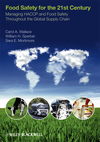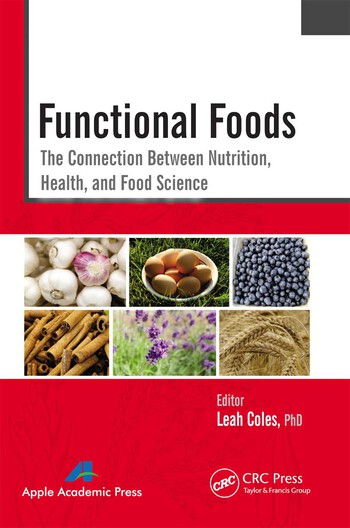R&D: Pea Protein: The Good, Bad and Ugly -- January 2009
First, the bad and the ugly. Economic realities of higher raw material costs and shrinking margins hit home with everyone. Advertising dollars are often being pumped into lower-cost/higher-margin products in everything from breakfast cereal to condensed soup. This represents a big shift, as for several years promotion of higher-priced “premium” brands have been the key strategy employed by many food companies. It is clear that during these uncertain economic times, finding ways to maintain quality, while cutting costs, is a good strategy. Food ingredients that can do both will be poised for expansion into food formulations.
The good: use of pea protein isolate is one way to cut costs as a meat extender, while also maintaining or improving nutritional content. Farbest Brands produces a proprietary pea protein isolate called FarMax™ 785 that is a natural, kosher, non-allergenic, GMO-free vegetable protein. FarMax 785 has a protein content of 92% (dry basis) and 85% (“as is” basis), a PDCAAS of 86 and an excellent amino acid profile. There are 18 amino acids present in FarMax 785, with the highest content in glutamine (14.7%) and asparagine (10.2%). There are also substantial amounts of leucine (7.7%), arginine (7.1%), lysine (6.3%), phenylalanine (5.0%), valine (4.5), serine (4.2%), proline (4.1%), isoleucine (4.1%) and tyrosine (4.0%). Amino acids of 3% content or lower include methionine, cysteine, threonine, glycine, alanine, histidine and tryptophane. FarMax 785 also contributes 381.0 calories per 100g, with 45 calories coming from fat (and a total of 5g of fat/100g).
“This product, FarMax 785 pea protein isolate, is truly exciting. FarMax offers meat processors a natural product that not only has a positive impact on the nutritional profile of their product, it also offers cost advantages through improved yields and as an aid to purge reduction,” says Dale Bertrand, technical services specialist with Farbest Brands.
The proprietary pea protein isolate is relatively soluble, but low in taste, and is highly functional in a variety of applications, including hot dogs/bologna, coarse ground sausage and poultry nuggets. It is produced from the yellow pea and is a hypoallergenic protein source, not eliciting allergic reaction concerns, like several other potential protein isolate sources, such as soy, milk proteins, seed and gluten products. Beyond its protein-boosting properties in products, it makes an excellent emulsifier and water-binding agent, says the supplier.
According to Farbest, in meat emulsions, during cold preparation, every percent of FarMax 785 can bind up to 5% fat. Additionally, if the proprietary pea protein isolate 785 is used in a heated application, or if a pre-heated slurry of FarMax 785 is prepared, the emulsification capacity increases to 10% fat for every percent of FarMax 785. That is reportedly twice as much emulsifying capacity as some pea protein competitors.
-- Kerry Hughes, Technical Field Editor
For more information:
Farbest Brands • Montvale, N.J.
Dale Bertrand • 201-573-4900
dbertrand@Farbest.com • www.farbest.com
The good: use of pea protein isolate is one way to cut costs as a meat extender, while also maintaining or improving nutritional content. Farbest Brands produces a proprietary pea protein isolate called FarMax™ 785 that is a natural, kosher, non-allergenic, GMO-free vegetable protein. FarMax 785 has a protein content of 92% (dry basis) and 85% (“as is” basis), a PDCAAS of 86 and an excellent amino acid profile. There are 18 amino acids present in FarMax 785, with the highest content in glutamine (14.7%) and asparagine (10.2%). There are also substantial amounts of leucine (7.7%), arginine (7.1%), lysine (6.3%), phenylalanine (5.0%), valine (4.5), serine (4.2%), proline (4.1%), isoleucine (4.1%) and tyrosine (4.0%). Amino acids of 3% content or lower include methionine, cysteine, threonine, glycine, alanine, histidine and tryptophane. FarMax 785 also contributes 381.0 calories per 100g, with 45 calories coming from fat (and a total of 5g of fat/100g).
“This product, FarMax 785 pea protein isolate, is truly exciting. FarMax offers meat processors a natural product that not only has a positive impact on the nutritional profile of their product, it also offers cost advantages through improved yields and as an aid to purge reduction,” says Dale Bertrand, technical services specialist with Farbest Brands.
The proprietary pea protein isolate is relatively soluble, but low in taste, and is highly functional in a variety of applications, including hot dogs/bologna, coarse ground sausage and poultry nuggets. It is produced from the yellow pea and is a hypoallergenic protein source, not eliciting allergic reaction concerns, like several other potential protein isolate sources, such as soy, milk proteins, seed and gluten products. Beyond its protein-boosting properties in products, it makes an excellent emulsifier and water-binding agent, says the supplier.
According to Farbest, in meat emulsions, during cold preparation, every percent of FarMax 785 can bind up to 5% fat. Additionally, if the proprietary pea protein isolate 785 is used in a heated application, or if a pre-heated slurry of FarMax 785 is prepared, the emulsification capacity increases to 10% fat for every percent of FarMax 785. That is reportedly twice as much emulsifying capacity as some pea protein competitors.
-- Kerry Hughes, Technical Field Editor
For more information:
Farbest Brands • Montvale, N.J.
Dale Bertrand • 201-573-4900
dbertrand@Farbest.com • www.farbest.com
Looking for a reprint of this article?
From high-res PDFs to custom plaques, order your copy today!






